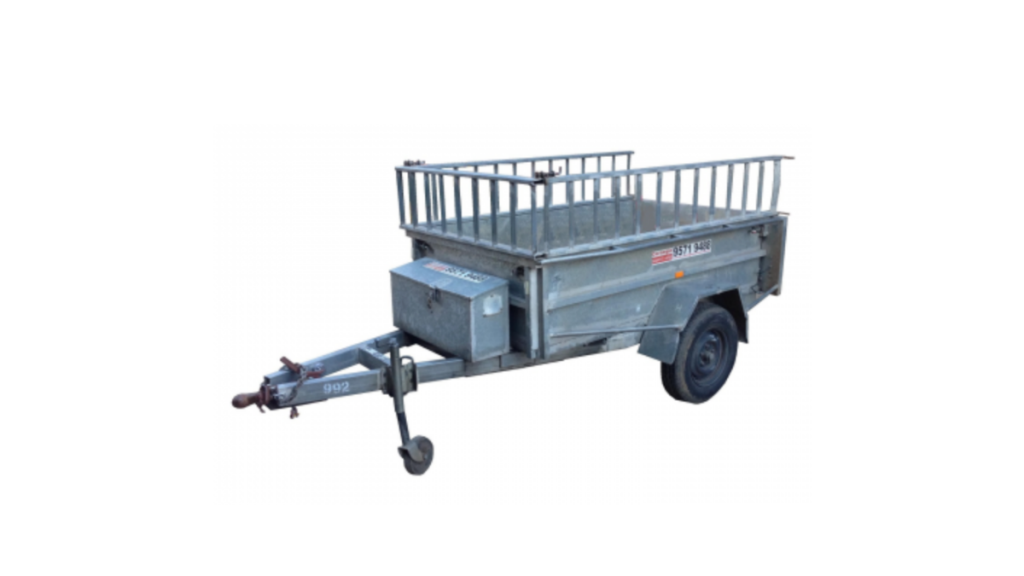Some people make towing a trailer look quite easy! However, if you’re going to be towing for the first time, the thought of it can be quite stressful. Especially if you’re hauling a full load over a long distance.
Opting for trailer rental is an incredibly convenient way to move home or office furniture from point A to Point B. It’s also the best option to move a vehicle between locations. However, there are a few risks that first-time trailer users should be aware of to avoid a major accident.
Contents
Eliminate These Potential Towing Risks
Our team of experts understand that not everyone gives thought to the risks associated with towing. Especially if you’re not really aware of the risks! With this in mind, they’ve created a list of the safety concerns all drivers should keep in mind.
1. Using Mismatched Equipment
One of the major risks that often arise from towing is the use of mismatched equipment. This happens when the trailer you’re planning to tow doesn’t match the capacity of the vehicle that’s going to do the towing.
To avoid this, consider the following:
- Know the maximum towing ability of your vehicle. Larger vehicles should always tow large trailers.
- Check the towing capacity of the trailer.
- Take the weight of the load into account when you’re calculating the load requirement.
- Speak to your local trailer rental agent for assistance if you’re not sure how to calculate load requirements.
2. Understand Visibility
The real reason many people are so uncomfortable with towing a trailer is the lack of visibility that hauling a huge load brings. This is often the case when you’re towing a caravan, boat or large pieces of furniture.
Fortunately, there are a few ways to overcome this obstacle:
- Invest in a few towing mirrors as these will give you a wider rear view.
- Avoid reversing a trailer if you have minimal visibility—rather ask a friend to assist you by spotting from behind.
- Refrain from reversing in built-up areas or locations where there’s a lot of traffic.
- Where possible, avoid driving with a load during harsh weather that may impair visibility.
Tip: rather ask a friend with experience to reverse the trailer for you, while you keep an eye out for any obstacles.
3. Watch Out for Unbalanced Loads
Loading the trailer is about a lot more than getting everything to fit. An unbalanced load can make the trailer unsafe and difficult to operate. To assist you with creating a balanced load, consider these tips:
- Load heavier items at the front and lighter ones at the back.
- Ensure that both sides of the trailer are loaded equally so that you don’t compromise balance when turning with the trailer.
- Move the items around to ensure that the trailer will be balanced even when the trailer is stationary.
- Unhitch the trailer as carefully as possible to avoid it moving or lifting too quickly.
4. Be Careful of Trailer Swaying
Quite possibly one of the scariest things to have happen during your towing experience is for the trailer to start swaying. This is usually caused by towing an unbalanced load, taking corners too quickly, driving too fast or a sudden gust of wind.
It’s worth mentioning that once a trailer starts swaying on the road, it’s very difficult to get it to slow down and stop. Your best course of action is to stop it from happening in the first place.
Follow these tips to prevent swaying as much as possible:
- Ensure the load is balanced. (Refer to point 3)
- Speak to your trailer rental agent for recommendations about the best tie-down straps to use as this will keep your loaded items secured and will reduce the risk of something falling off in the event of an unforeseen sway.
- Don’t drive too fast – rather opt to use a quiet road and don’t drive during peak traffic to avoid being pressured into driving faster.
- Check the weather report – avoid driving during windy or rainy weather.
- Be careful of the speed you drive around corners or on difficult terrain.
5. Understand the Accelerating and Braking Ratio
It’s essential to understand that there’s an increased toll on your vehicle when you brake or accelerate. Due to an increase in overall mass, your vehicle automatically works harder to accelerate. You’ll need to keep this in mind when you’re trying to overtake other vehicles.
The same principle applies when you’re trying to brake. Safety experts recommend giving yourself an extra 10-15 meters of braking space because you’ll need to accommodate the extra mass behind the vehicle. It’s critical to remember that you may even need more space than this if your trailer is fully loaded.
Final Thoughts
Using a trailer can be a very cost-effective way to move anything—from a few boxes to your whole furniture load. The trick with using a trailer is to choose the correct capacity and shape for your load.
Our last tip: asking a levelheaded friend (someone who won’t panic) to drive with you to assist where necessary will make the process considerably easier!

